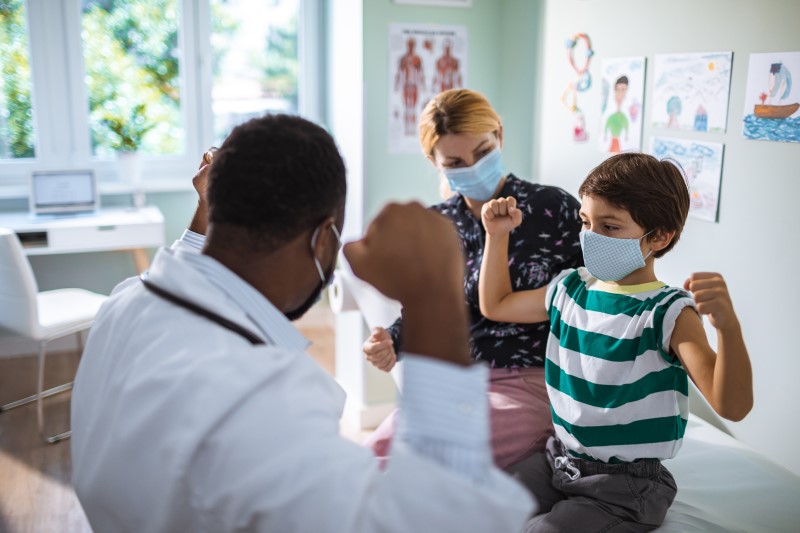
Are COVID-19 symptoms different in children than adults?
Most COVID-19 symptoms are the same for children as it is for adults and include fever, cough, tiredness, sore throat, a runny or stuffy nose, diarrhea, or vomiting. Children are less likely than adults to have severe symptoms. Some children may not have any symptoms at all (asymptomatic). Serious symptoms may be more common in children who have certain health problems.
What should I do if my child has symptoms of COVID-19?
Call your child’s doctor. They can tell you what to do, including testing information and advice to best treat and care for your child.
How are children treated for COVID-19?
Most healthy children who get infected are able to recover at home. It is important that they get rest and stay hydrated. Monitor your child for worsening symptoms, and call your child’s doctor with any questions or concerns.
Can COVID-19 lead to other illnesses in children?
There are rare reports of children with COVID-19 experiencing inflammation throughout the body called Multisystem inflammatory syndrome in children (MIS-C). This can be serious and lead to organ damage if not treated quickly.
Symptoms of this condition include:
- Fever that lasts for longer than 24 hours
- Belly pain, vomiting, or diarrhea
- Rash
- Bloodshot eyes
- Confusion, irritability, or being extra tired
Call your child’s doctor right away if your child has any of these symptoms.
How can I talk to my child about the pandemic?
Helping your child feel comfortable during this time is especially important. Talking about COVID-19 shouldn’t increase your child’s anxiety– knowledge is powerful and gives children reliable and predictable information about what is happening.
Make them feel safe by staying calm and reassure them that you are there to take care of them. Offer them comfort, but be truthful.
Let them lead the conversation, and ask what they already know. This will give you an idea of what they are concerned about, or if they have been hearing the wrong information.
If your child is expressing fear or anxiety, let them know that kids don’t seem to get as sick as adults. You can let them know that precautions like quarantining and social distancing help keep everyone safe.
You can be an example to your children by being vaccinated, washing your hands frequently and encouraging them to do the same, and wearing your mask.
Additional Resources
For more tips and tricks on about talking to your kids about COVID-19, PBS has published “10 Tips for Talking About COVID-19 with Your Kids” and is a great resource on ideas about how to start the conversation, or how to help them deal with changes caused by the pandemic.
To help keep little ones busy and give them helpful, age-appropriate information about COVID-19 the CDC published a free coloring book Coping with COVID-19, with printable pages.



